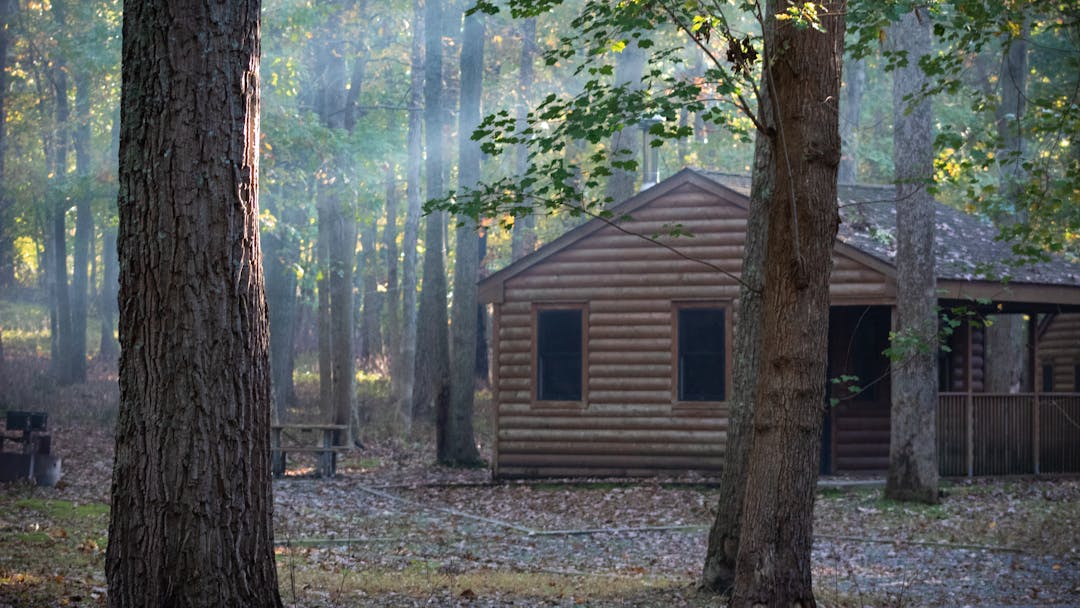No Results Found
The page you requested could not be found. Try refining your search, or use the navigation above to locate the post.

Verbal agreements, also called oral contracts, can be legal and enforceable in Michigan, but with some limitations.
Here’s a breakdown:
Generally Enforceable: Michigan law recognizes verbal contracts as valid if they meet the standard elements of a contract: offer, acceptance, and consideration (exchange of something of value).
Statute of Frauds: However, there’s a law called the Statute of Frauds that requires certain contracts to be in writing and signed to be enforceable.
These include:
Difficulties in Court: Even if your verbal agreement isn’t subject to the Statute of Frauds, it can be difficult to enforce in court. This is because there’s no written record of the agreement, so it becomes a “he-said, she-said” situation.
To Sum it Up: Verbal agreements can be legal in Michigan, but it’s always better to have a written contract, especially for important agreements. A written contract provides clear evidence of the terms and reduces the risk of misunderstandings or someone backing out of the agreement.
If you’re unsure whether your verbal agreement needs to be in writing or you need help enforcing a verbal agreement, it’s best to consult with an attorney.
There isn’t a specific MCL dedicated solely to verbal agreements in Michigan. However, the relevant statute that applies to the enforceability of certain contracts based on form is the Statute of Frauds. This is found in the Uniform Commercial Code (UCC) under Article 2 on Sales:
This MCL outlines the types of contracts that must be in writing and signed to be enforceable in court. These include:
Michigan’s UCC also has a separate provision under Article 2 for the sale of goods:
This MCL requires any contract for the sale of goods for more than $1,000 to be in writing to be enforceable.
So, while there’s no single MCL for verbal agreements, these two provisions (MCL 566.132 and MCL 440.2201) are the key ones to consider when determining if a verbal agreement needs to be written down in Michigan.
Real Questions from Real Calls
Question: I made a verbal agreement and shook hands with my friend for a $20 bet that he couldn’t eat a spoonful of cinnamon. He did. Am I legally obligated to pay him?
Answer: Some questions don’t need legal advice. Pay him the $20 and don’t bet anymore.
Related Articles
The page you requested could not be found. Try refining your search, or use the navigation above to locate the post.
Controversial Michigan marijuana testing lab says potency results are legit. IT HAS PROOF! Michigan regulators and the state’s largest marijuana safety testing lab are...
You can be arrested for DUI when on private property. Private means only so much. Michigan's drunk driving law allows the police to arrest you for DUI or OUI even if...
December 6, 2022 - Through the diligence and tenacity of trial attorney Michael Komorn and the team at Komorn Law. We are proud to announce - another case dismissed.
Komorn Law in conjunction with Rudoi Law and the Michigan Association of OWI Attorneys filed an amicus brief in support of the Defendant-Appellant, who was being...
A Nevada judge has ruled on a closely-followed lawsuit that could have precedent setting influence on a federal level. He determined that the Nevada Board of...
Search Results Top 10 Criminal Defense Attorneys Featured Attorney Award winning Attorney Michael Komorn owner and Trial Attorney for his firm Komorn Law PLLC is based...
A major national banking association, along with 44 state partners, is asking Senate leadership to bring a House-passed marijuana banking reform bill to a vote on the...
Michael Komorn was featured as one of the Top 10 Criminal Defense Attorneys in Michigan. The award-winning Attorney has clients throughout the state. MICHIGAN, USA,...
If you feel like your case has been or could be affected by the inaccuracy of the MSP's marijuana testing results contact our office immediately! Call 800-656-3557...
When facing criminal charges you have the right to have a trial by jury. The justice system will offer you the right to a jury trial. It's just a matter if you can...

Squatting, in one definition is the act of occupying a property without legal permission, can be a headache for both property owners and squatters themselves. Sorry to cause you a such a headache squatter.
Michigan has specific laws addressing squatting, offering some protection to owners while outlining potential consequences for squatters.
Here’s One…
MCL 750.553: Criminal Trespass
Michigan criminalizes squatting in single-family dwellings and one or both units in a two-family dwelling through MCL 750.553. This law defines “occupies” as physically living within the structure.
Here’s a breakdown of the key points:
This statute empowers property owners to pursue legal action against squatters, potentially leading to their removal and facing criminal charges. While they destroy your property and cost you legal fees, house and utility payments.
Self-Help Eviction
Michigan offers a unique remedy for property owners: self-help eviction.
Unlike most states, Michigan allows owners to take specific actions to encourage squatters to leave without involving law enforcement.
However, crucial limitations exist:
Important Cautions:
MCL Adverse Possession vs. Squatting
It’s important to distinguish squatting from adverse possession, another legal concept related to occupying land. MCL 600.5801 [MCL 600.5801] outlines adverse possession, where someone can potentially gain ownership of a property through extended, uninterrupted, and hostile possession that meets specific criteria. Squatting, however, is generally temporary and lacks the “hostile” element required for adverse possession.
Adverse Possession in Michigan – Can Someone Claim Your Property?
Taking Action – Since You Can’t Call in the A Team
If you suspect someone is squatting in your property, here are some steps to consider:
The page you requested could not be found. Try refining your search, or use the navigation above to locate the post.
The Law
750.553 Occupancy of building without consent; violation; penalty; exception.
Sec. 553.
Real Questions from Real Calls
Question: I am squatting in a house in Michigan and was threatened by the owner. What can I do?
In Michigan, squatting is illegal and the owner has the right to take action to get you out. Here’s what you should know:
Your Legal Situation:
What You Can Do:
Important Notes:
Here are some resources that can help:
Related Articles
The page you requested could not be found. Try refining your search, or use the navigation above to locate the post.
Controversial Michigan marijuana testing lab says potency results are legit. IT HAS PROOF! Michigan regulators and the state’s largest marijuana safety testing lab are...
You can be arrested for DUI when on private property. Private means only so much. Michigan's drunk driving law allows the police to arrest you for DUI or OUI even if...
December 6, 2022 - Through the diligence and tenacity of trial attorney Michael Komorn and the team at Komorn Law. We are proud to announce - another case dismissed.
Komorn Law in conjunction with Rudoi Law and the Michigan Association of OWI Attorneys filed an amicus brief in support of the Defendant-Appellant, who was being...
A Nevada judge has ruled on a closely-followed lawsuit that could have precedent setting influence on a federal level. He determined that the Nevada Board of...
Search Results Top 10 Criminal Defense Attorneys Featured Attorney Award winning Attorney Michael Komorn owner and Trial Attorney for his firm Komorn Law PLLC is based...
A major national banking association, along with 44 state partners, is asking Senate leadership to bring a House-passed marijuana banking reform bill to a vote on the...
Michael Komorn was featured as one of the Top 10 Criminal Defense Attorneys in Michigan. The award-winning Attorney has clients throughout the state. MICHIGAN, USA,...
If you feel like your case has been or could be affected by the inaccuracy of the MSP's marijuana testing results contact our office immediately! Call 800-656-3557...
When facing criminal charges you have the right to have a trial by jury. The justice system will offer you the right to a jury trial. It's just a matter if you can...

Michigan recognizes adverse possession, a legal doctrine allowing someone to acquire ownership of real property they’ve occupied for a specific period, even without a formal title.
The Statute: MCL 600.5801
The relevant statute governing adverse possession is MCL 600.5801 [MCL 600.5801], titled “Limitations of actions – real property.” It establishes time limits for filing legal actions regarding land ownership.
Subsection (4) is crucial, stating a 15-year limitation period “in all other cases under this section.” This implies that to gain title through adverse possession, one must continuously possess the land for fifteen years.
600.5801 Limitation on actions; time periods; defendant claiming title under deed, court-ordered sale, tax deed, or will; other cases.
Sec. 5801.
Elements of Adverse Possession
To successfully claim adverse possession in Michigan, the claimant (squatter) must demonstrate they possessed the property in a way that meets the following criteria:
We’ll Take That From You.
MCL 600.5821 addresses limitations for government entities [MCL 600.5821]. Government entities like municipalities and road commissions are generally not subject to adverse possession claims.
Additionally, the “hostile” element can be tricky. Permission from the true owner, even verbal, can disrupt the claim.
Consulting an attorney is highly recommended to assess the specific facts of a potential adverse possession case.
Potential Issues
Successfully establishing adverse possession allows the claimant to gain legal title to the property.
However, there are potential drawbacks. The process can be lengthy and require significant evidence. Additionally, if the true owner contests the claim, litigation can be costly.
Real Questions from Real Calls
Question: I have been living in a tent for 15 years in a Michigan State Park. Can I claim that property as my own under the adverse possession laws?
Unfortunately, you cannot claim ownership of the land in the Michigan State Park through adverse possession for a few reasons:
While you’ve met the time requirement (15 years in Michigan), the other elements likely wouldn’t hold up either.
Here’s what you can do:
While claiming ownership through adverse possession isn’t possible in this case, there might be other options to consider.
Related Articles
The page you requested could not be found. Try refining your search, or use the navigation above to locate the post.
The page you requested could not be found. Try refining your search, or use the navigation above to locate the post.

A public high school was found to have violated the First Amendment when it suspended a student from her cheerleading team for using profane speech off campus.
Mahanoy Area Sch Dist v BL, No 20-255, ___ US ___ (June 23, 2021).
The U.S. Supreme Court has determined that Pennsylvania high school officials did not possess the jurisdiction to reprimand a student for her off-campus, profane Snapchat post, which was made out of frustration after not being selected for the varsity cheerleading squad.
The court ruled 8-1 that the social media post did not cause a substantial disruption under Tinker v. Des Moines Independent Community School District.
A female student at Mahanoy Area High School in Pennsylvania, who did not make the school’s varsity cheerleading team but was instead placed on the junior varsity team, expressed her frustration by posting two images on Snapchat while at a local store during the weekend.
One image included explicit language and gestures alongside general comments about cheerleading and school, although it did not specify the school by name.
The second image only contained the following text: “Love how me and [another student] get told we need a year of jv before we make varsity but tha[t] doesn’t matter to anyone else?”
The cheerleading coach and school administrators were made aware of B.L.’s posts and subsequently decided to suspend her from the team for a duration of one year.
Through her parents, Levy sued in federal court, asserting that the disciplinary action violated her First Amendment right to free speech. Additionally, they contended that it was the responsibility of her parents, not school officials, to administer discipline.
A federal district court and the U.S. Court of Appeals for the 3rd Circuit both ruled in favor of Levy, stating that the Tinker substantial disruption standard does not apply to off-campus, online student speech.
Alternatively, the 3rd Circuit also determined that, even if Tinker was deemed applicable, the post did not reach the threshold of causing substantial disruption.
The school district wasted tax dollars and appealed the Supreme Court decision.
Justice Stephen Breyer Reasoning that a school’s regulatory interests are diminished when a student partakes in off-campus social media speech, it was identified that three distinct features of social media speech govern such an approach.
He emphasized the importance of officials maintaining regulatory oversight over social media speech involving cyberbullying, harassment, threats, or breaches of school security devices.
Justice Alito’s concurring opinion advises public schools to exercise thoughtful caution when seeking to regulate off-campus speech.
Related Articles
The page you requested could not be found. Try refining your search, or use the navigation above to locate the post.
The page you requested could not be found. Try refining your search, or use the navigation above to locate the post.

Effective February 13, 2024
On February 6, 2024, the Michigan Supreme Court issued ADM File No. 2023-24, which adopts amendments to MCR 3.701 and the addition of MCR 3.715, .716, .717, .718, .719, .720, .721, and .722, effective February 13, 2024.
These changes follow the creation of the Extreme Risk Protection Order Act and amendments to the Firearms Act, the Code of Criminal Procedure, and the Revised Judicature Act in May of 2023.
MCR 3.716 also details requirements for the complaint, a complaint against a minor, and venue.
The respondent has an appeal of right from a judgment of sentence for criminal contempt entered after a contested hearing.
The respondent has the lawful right to appeal a judgment of sentence for criminal contempt entered following a contested hearing.
Chief Justice Clement concurred with the proposed adoption of the ERPO court rules, but she wrote separately to address her concerns regarding inconsistent legal terminology used in the Extreme Risk Protection Order Act..
Among other linguistic inconsistencies, she emphasized that the Act “requires an individual to file “a summons and complaint” to initiate an ERPO action” but the nature of ERPO actions is consistent with that of a petition—not a complaint.
The Michigan Supreme Court has developed a range of SCAO forms aligned with the ERPO, showcasing their commitment to effective legal documentation.:
See the Court’s February 7, 2023 memorandum for more info.
Court Form Information
https://www.courts.michigan.gov/4908b5/siteassets/forms/scao-approved/recent-revisions/eoc_erpo.pdf
Related Articles
The page you requested could not be found. Try refining your search, or use the navigation above to locate the post.
The page you requested could not be found. Try refining your search, or use the navigation above to locate the post.